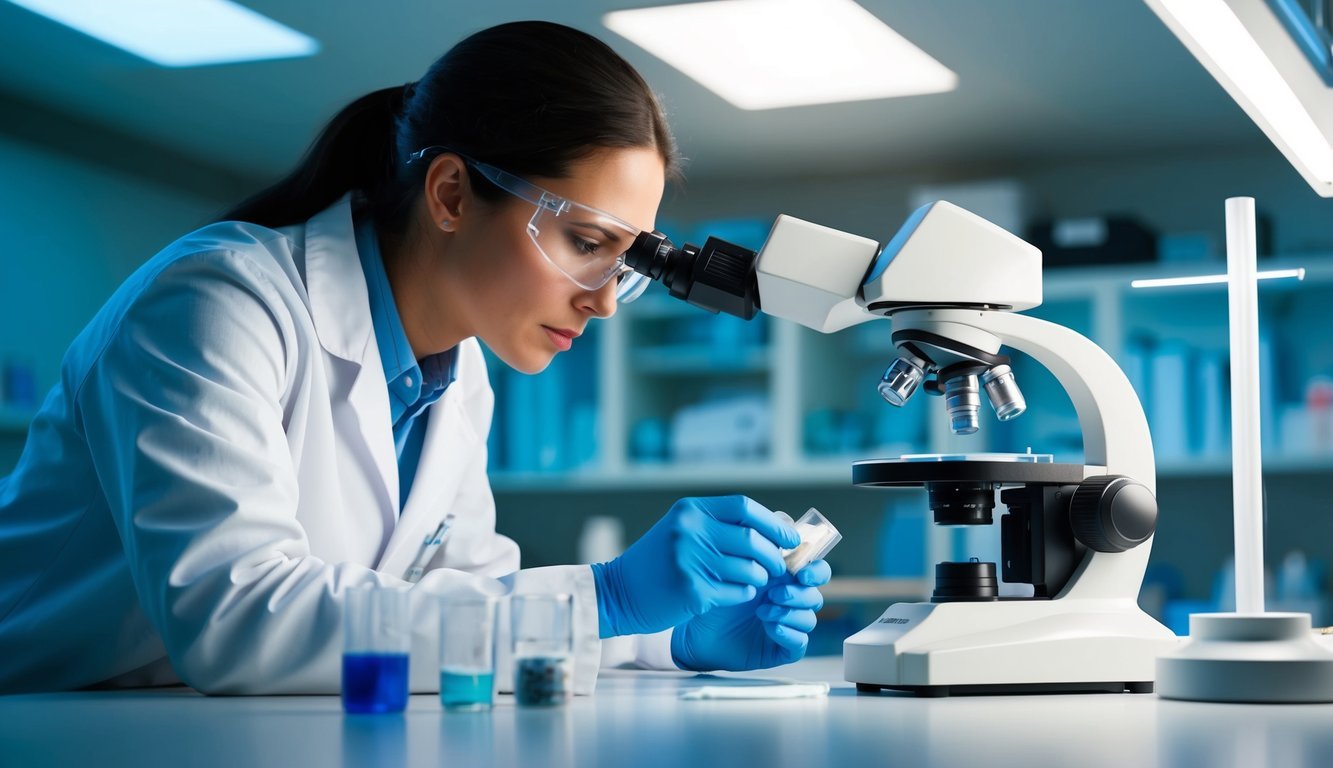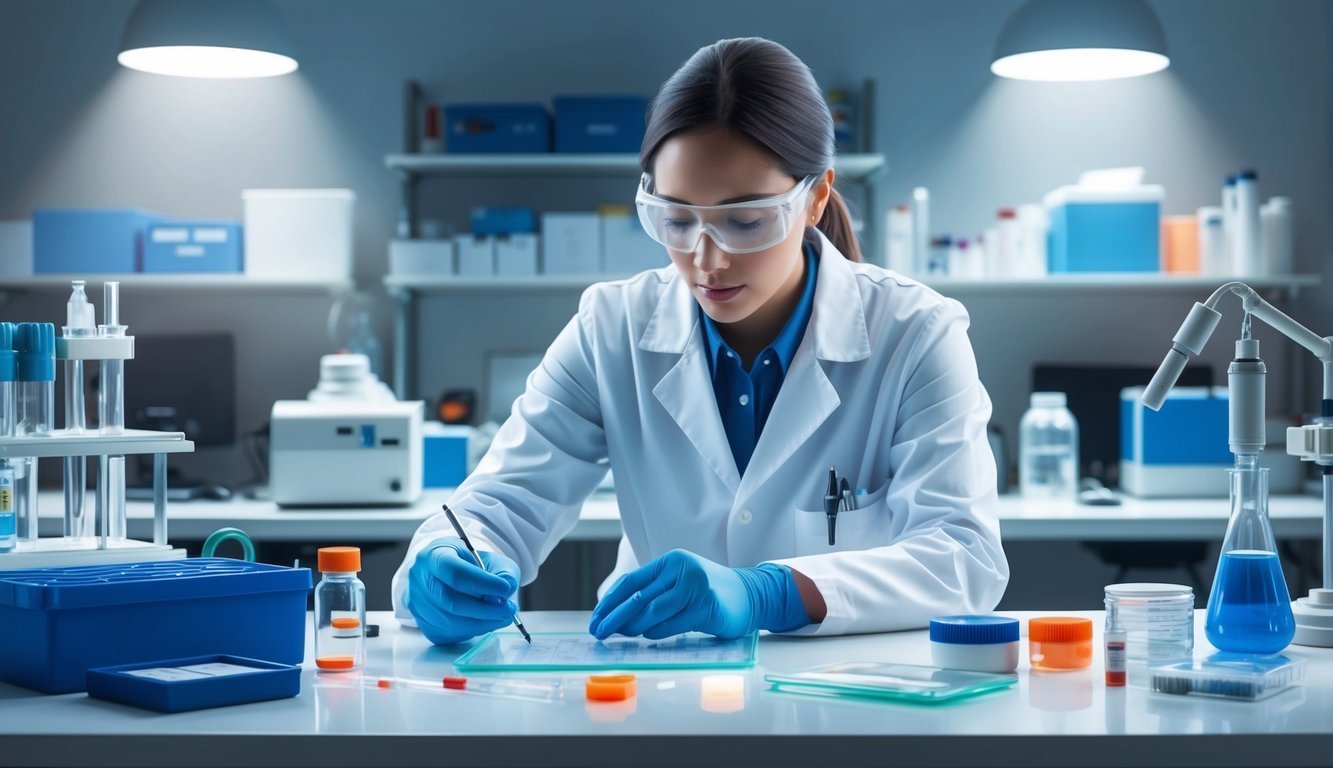Forensic science technicians play a vital role in the criminal justice system, ensuring that justice is served through careful analysis of evidence from crime scenes.
They collect, preserve, and analyze physical evidence, providing crucial information that assists law enforcement in criminal investigations.
If you have ever been intrigued by the meticulous work that goes into solving crimes, this field may capture your interest.
In this dynamic area of forensic science, technicians utilize advanced technology and scientific methods to examine everything from fingerprints and DNA to firearms and drugs.
Their findings not only help in identifying suspects but also in exonerating the innocent.
Understanding the skills and education needed for this career can open pathways for those passionate about science and justice.
As forensic science continues to evolve, the demand for skilled technicians is on the rise.
According to the U.S. Bureau of Labor Statistics, job openings in this field are set to grow significantly in the coming years, driven by the need to replace workers and the expansion of forensic science in criminal investigations.
By exploring what it takes to become a forensic science technician, you can uncover a fulfilling career dedicated to maintaining the integrity of the legal system.
The Role of Forensic Science Technicians
Forensic science technicians play a crucial role in the criminal justice system, focusing on the meticulous collection, analysis, and preservation of evidence.
Your responsibilities extend from the crime scene to the laboratory, where you support law enforcement.
Crime Scene Investigation
In crime scene investigation, you are often the first professional on the scene.
Your primary task is to document and collect evidence with precision.
This may include taking photographs, sketching the scene, and noting the positions of various evidence items.
You also follow strict protocols to ensure that evidence is collected without contamination.
Techniques such as using gloves, masks, and appropriate containers are essential.
Understanding the dynamics of the crime scene allows you to gather meaningful evidence that can later be analyzed.
Evidence Analysis and Preservation
Once evidence is collected, your role shifts to analysis and preservation.
This includes carefully examining physical items such as fingerprints, DNA samples, and ballistic evidence.
You utilize various scientific methods to identify and analyze this evidence to support investigations.
Preserving evidence is equally critical.
You must store materials in a way that prevents degradation or contamination.
This requires knowledge of proper packaging techniques and storage conditions.
Ensuring that evidence maintains its integrity can be vital for court proceedings.
Interacting With Law Enforcement
Your interaction with law enforcement is a pivotal part of your role.
You work closely with police officers, detectives, and legal teams to provide insights based on your findings.
Effective communication of your analysis helps them understand the implications of the evidence.
Moreover, you may serve as an expert witness in court.
During trials, you explain evidence collection methods and analysis results in a clear, concise manner.
Your testimony can greatly influence the outcomes of cases and provide juries with the facts they need to reach a verdict.
Educational Pathways
To pursue a career as a forensic science technician, you should be aware of the educational requirements and options available to you.
The key steps involve obtaining a bachelor’s degree, acquiring relevant certifications, and considering advanced degrees for specialization.
Bachelor’s Degree Requirements
Most forensic science technician positions require at least a bachelor’s degree in a relevant field.
Common majors include:
- Forensic Science
- Biology
- Chemistry
- Criminal Justice
These programs often incorporate coursework specific to forensic techniques and procedures.
Ensure that the program you choose is accredited by recognized bodies such as the Forensic Science Education Programs Accreditation Commission.
This accreditation enhances the quality of education and makes you more competitive in the job market.
Hands-on experience is also crucial.
Many programs offer laboratory work or internships, providing you with practical skills beneficial in forensic analysis.
Certifications and Continuing Education
Certifications allow you to validate your skills and expertise in forensic science.
The American Board of Criminalistics and similar organizations offer various certifications that can boost your credentials.
Ongoing education is equally important.
You should engage in continuing education opportunities to stay updated with the latest techniques and advancements in the field.
Many organizations require certified forensic technicians to complete a specified number of training hours every few years.
Participating in workshops, webinars, and conferences can provide valuable networking opportunities and help you learn from experienced professionals.
Advanced Degrees and Specializations
While a bachelor’s degree may suffice for entry-level positions, pursuing a master’s degree in forensic science can enhance your career prospects.
With an advanced degree, you could specialize in areas like toxicology, DNA analysis, or forensic anthropology.
Advanced education also often incorporates research opportunities, allowing you to explore specific interests within forensic science.
Some programs may offer on-the-job training or apprenticeships as part of the curriculum, giving you hands-on experience in your specialization.
Pursuing higher education may lead to roles in management or specialized forensic fields that typically command higher salaries and greater responsibilities.
Specialized Forensic Techniques
Forensic science technicians utilize various specialized techniques to analyze physical evidence.
These methods are essential in solving crimes and establishing connections between suspects and crime scenes.
The following techniques offer insights into how forensic scientists gather and interpret critical information.
Fingerprinting and DNA Analysis
Fingerprinting remains one of the most reliable methods for identifying individuals.
Each person’s fingerprints have unique patterns, which forensic experts can analyze to match them to crime scenes.
Techniques such as digital scanning and chemical visualization are commonly used to enhance and capture prints.
DNA analysis has revolutionized forensic science.
When biological samples are collected, forensic biology is employed to extract DNA.
Techniques like polymerase chain reaction (PCR) amplify DNA for further analysis.
This can link a suspect to a crime scene, especially in sensitive cases like sexual assaults.
For more information on DNA analysis, visit the U.S. Bureau of Labor Statistics for details on its significance in forensic science here.
Ballistics and Bloodstain Pattern Analysis
Ballistics focuses on the study of firearms and ammunition.
Forensic technicians analyze bullets and cartridge cases to determine their origin.
Techniques such as comparative microscopy are used to match projectiles to specific weapons, offering crucial insights into shooting incidents.
Bloodstain pattern analysis helps determine the circumstances surrounding a crime scene.
Forensic scientists study the shape, location, and distribution of bloodstains.
This information can reveal important factors, such as the position of the victim and the type of weapon used.
Techniques in forensic chemistry and biology come into play during this analysis.
Understanding these patterns aids investigators in reconstructing events leading to the crime.
Toxicology and Biochemistry
Forensic toxicology involves analyzing bodily fluids to detect drugs, alcohol, and poisons.
Technicians utilize methods such as gas chromatography and mass spectrometry to identify substances present in samples.
This analysis helps determine whether substances contributed to a person’s death or impairment.
Biochemistry plays a vital role in forensic science, particularly in analyzing biological samples.
By understanding the chemical makeup of substances found at crime scenes, forensic biologists can identify and connect evidence to specific individuals.
This can include anything from establishing the presence of drugs in a system to analyzing toxins.
The intersection of toxicology and biochemistry is crucial for solving complex cases.
Professional Development and Career Outlook
In the field of forensic science, understanding your role and growth opportunities can greatly enhance your career.
This section provides insights into job duties, salary expectations, and avenues for professional networking that can support your development.
Job Duties and Work Environment
As a forensic science technician, your primary responsibilities include collecting and analyzing physical evidence from crime scenes.
You will process evidence such as fingerprints, DNA, and ballistic materials while ensuring the chain of custody is maintained.
Technicians often work in laboratories or on-site at various locations, including crime scenes and medical examiner’s offices.
Your tasks may also involve documenting findings, preparing reports, and testifying in court as expert witnesses.
You will collaborate with law enforcement, legal entities, and other forensic professionals, making attention to detail and analytical skills crucial.
Familiarity with legal standards and scientific procedures is essential for your success in this role.
Salary Expectations and Job Growth
According to the Bureau of Labor Statistics, the median annual wage for forensic science technicians was approximately $61,930 as of May 2021.
Salaries can vary widely based on experience, location, and specific job roles.
The lowest 10 percent earned less than $37,670, while the highest 10 percent made over $103,430.
Job growth in this field is promising, with projections indicating an increase of 14 percent from 2023 to 2033, much faster than the average for all occupations.
This translates to about 2,700 openings each year, as many positions will need to be filled due to turnover and retirements.
Networking and Professional Bodies
Establishing connections within the forensic science community is vital for your career advancement.
Joining professional organizations such as the International Association for Identification and the American Board of Criminalistics can provide valuable resources and networking opportunities.
Additionally, the Forensic Specialties Accreditation Board offers accreditation for various specialties, which can enhance your credibility.
Engaging in workshops, conferences, and online forums can help you stay updated on industry trends and advancements, allowing you to build a robust professional network that supports your career development.
Key Skills and Attributes

As a forensic science technician, you need a mix of specialized skills and personal attributes that are crucial for effective performance in crime laboratories.
These competencies help you analyze evidence accurately and work collaboratively with law enforcement.
Critical Thinking and Attention to Detail
Critical thinking is essential for evaluating evidence and making informed conclusions during forensic analysis.
You must assess various data sources, determine relevance, and recognize patterns.
Attention to detail directly impacts the accuracy of your work.
When collecting and analyzing evidence, even minor mistakes can lead to significant consequences.
For example, mislabeling a sample can compromise an entire investigation.
To excel, you should focus on enhancing these skills through practical experience and continued education in forensic science programs, which often emphasize real-world scenarios.
Communication and Testimony
Effective communication is crucial for sharing your findings with law enforcement and legal professionals.
You need to articulate complex scientific concepts in a clear, concise manner.
Testimony may be required in court, where you present evidence and explain your analytical processes.
Your credibility depends on your ability to convey information transparently.
Strong written skills are equally important for documenting findings and preparing reports.
Engaging in mock trials or attending workshops can provide valuable experience in courtroom settings, strengthening your ability to present evidence logically and persuasively.
Technical Proficiency
Your daily tasks as a forensic technician require proficiency in laboratory equipment and software.
You will work with microscopes, DNA extraction tools, and various analytical tools.
You also need familiarity with databases for evidence management.
Understanding how to navigate these systems will increase your efficiency and accuracy in tracking evidence and presenting your findings.
Continuous training in new technology and methods ensures that you remain at the forefront of the field.
Seek opportunities for hands-on training in crime laboratories to build your technical expertise effectively.

